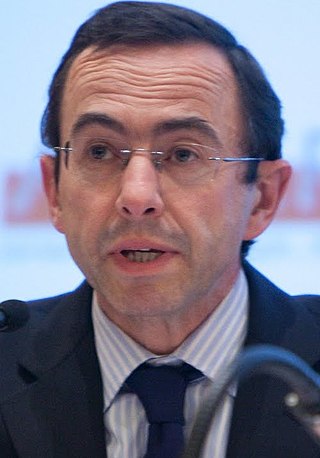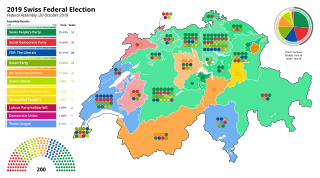
The politics of Andorra take place in a framework of a parliamentary constitutional monarchy, and a multi-party system. Executive power is exercised by the government, with the Head of Government of Andorra as chief executive. Legislative power is vested in both the government and parliament. The judiciary is independent of the executive and the legislature.
Regular elections in Croatia are mandated by the Constitution and legislation enacted by Parliament. The presidency, Parliament, county prefects and assemblies, city and town mayors, and city and municipal councils are all elective offices. Since 1990, seven presidential elections have been held. During the same period, ten parliamentary elections were also held. In addition, there were nine nationwide local elections. Croatia has also held three elections to elect members of the European Parliament following its accession to the EU on 1 July 2013.

There are two types of elections in Andorra: parliamentary elections and local elections. The 28 members of the General Council of the Valleys are elected in parliamentary elections for a maximum term of four years. In the local elections, the council members of the seven parishes of Andorra are elected for a four-year term.

Elections in Guinea-Bissau take place within the framework of a multi-party democracy and a semi-presidential system. Both the President and the National People's Assembly are directly elected by voters.
Elections in Hungary are held at two levels: general elections to elect the members of the National Assembly and local elections to elect local authorities. European Parliament elections are also held every 5 years.

Elections in Lithuania are held to select members of the parliament, the president, members of the municipal councils and mayors, as well as delegates to the European Parliament. Lithuanian citizens can also vote in mandatory or consultative referendums.

Following the 2011 Tunisian revolution, elections in Tunisia for the president and the unicameral Assembly of the Representatives of the People are scheduled to be held every five years. The assembly can be dissolved before finishing a full term.

The General Council is the unicameral parliament of Andorra. It is sometimes referred to as the General Council of the Valleys because it was the historical name and to distinguish it from similarly named bodies in the Val d'Aran and in France.

Early parliamentary elections were held in Andorra on 3 April 2011 after the General Council of Andorra was dissolved over problems in passing important laws, including the budget and laws related to a value added tax.

Parliamentary elections were held in Andorra on 9 December 1981, with a second round of voting on 16 December. Local elections were held on the same day. Following the elections, Òscar Ribas Reig became the country's first Prime Minister.

Parliamentary elections were held in Andorra on 12 and 19 December 1985. As political parties were not legalised until 1993, all candidates ran as independents. Following the election, Josep Pintat-Solans remained Prime Minister.

Parliamentary elections were held in Andorra on 10 December 1989, with a second round of voting on 17 December. Following the elections, Òscar Ribas Reig became Prime Minister, elected on 12 January 1990 by a vote of 23−5.

Parliamentary elections were held in Andorra on 5 April 1992, with a second round of voting on 12 April. Following the elections, Òscar Ribas Reig remained Prime Minister.

Senatorial elections were held on 24 September 2017 to renew 170 of 348 seats in the Senate of the French Fifth Republic.

The 1983 Andorran local elections were held on 12 December. Voters elected the council members of the seven parishes of Andorra. For first time since 1867, local elections were not hold on the same day as parliamentary elections. This was also the first time that the totality of the council seats were up for election.

The 1987 Andorran local elections were held on 13 and 20 December. Voters elected the council members of the seven parishes of Andorra. Following the election, the communal councils elected the mayors and deputy mayors.
The 1991 Andorran local elections were held on 15 and 22 December. Voters elected the council members of the seven parishes of Andorra. Following the election, the communal councils elected the mayors and deputy mayors.

Federal elections were held in Switzerland on 20 October 2019 to elect all members of both houses of the Federal Assembly. This was followed by the 2019 election to the Swiss Federal Council, the federal executive, by the United Federal Assembly.
The 2020 French municipal elections were held from 15 March to 28 June to renew the municipal councils of the approximately 35,000 French communes. The first round took place on 15 March and the second round was postponed to 28 June due to the COVID-19 pandemic.
The 2019 Andorran local elections were held on 15 December, to elect all councillors in the seven parishes of Andorra.







